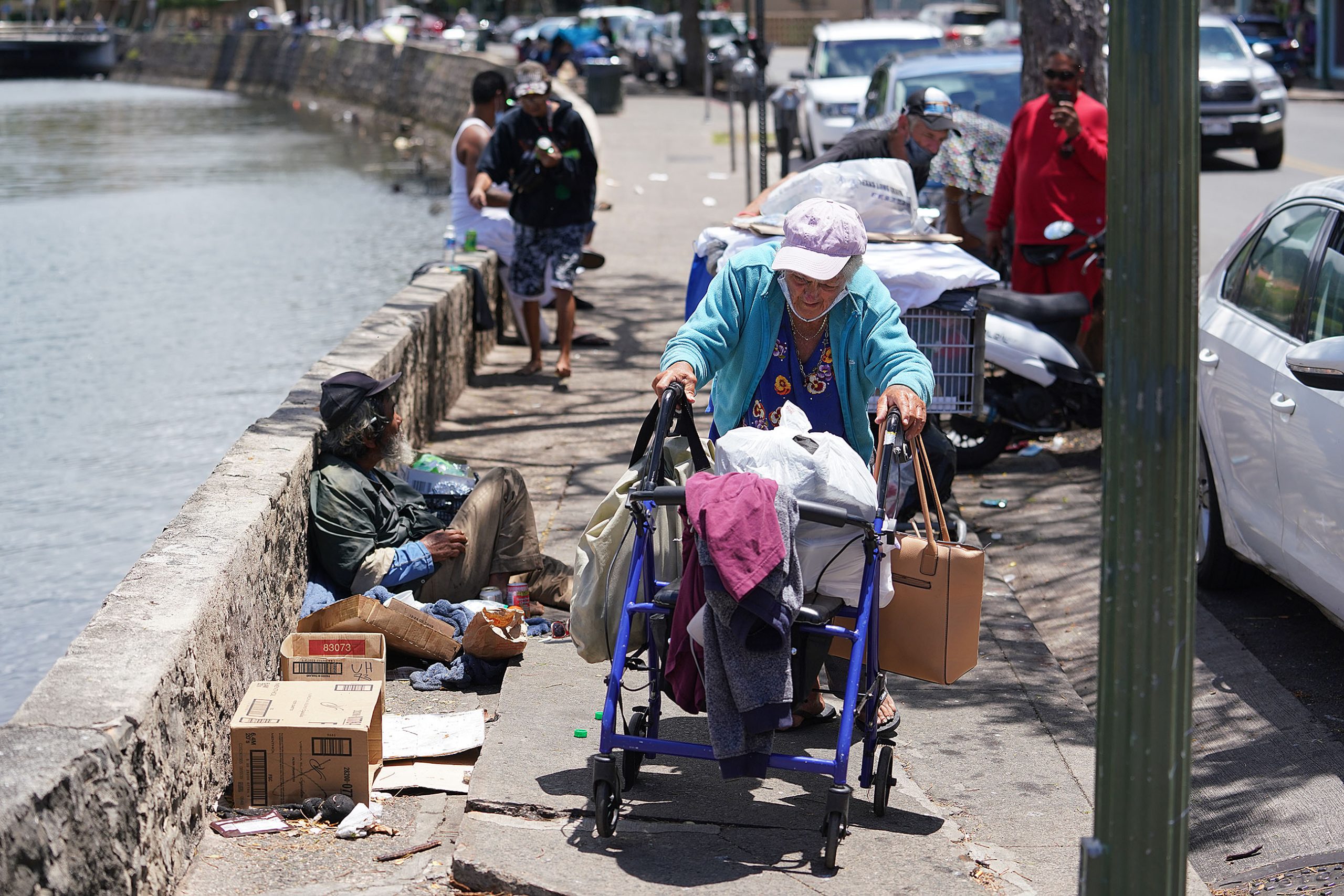An assisted outpatient treatment program would help Hawaii’s homeless people
[ad_1]
My passion is to provide humanistic mental health services that treat individuals fairly, ethically, and as a whole human being. Before moving to Hawaii in April, I worked for the last three years on an interdisciplinary psychiatric team that provides intensive all-round services to people with a long history of psychiatric hospitalization and diagnosed with severe mental illness.
To say that Oahu has a mental health crisis and homelessness is an understatement. All one has to do is walk down almost every major street in Honolulu to see the tents people call home or hear the screams of someone in need.
One attempt to address this crisis is to introduce ACT, an assisted outpatient treatment also known outside of Hawaii as AOT, assisted outpatient treatment.
The Hawaii ACT program mandates treatment for those with severe mental illness. These people usually have a long history of hospitalization and / or incarceration for non-compliance with medication or treatment, and the purpose of this program is to prevent further institutionalization.
We could definitely discuss the legitimacy and ethics of mandated services. What I want to address, however, is the idea of ​​what is called “treatment”.
Case management “ineffective”
In Hawaii, mandatory treatment for a person is to have a psychiatrist prescribe medication and case management services. If a person refuses medication, the police can take them to the hospital and force them to take it.
A case manager helps enforce the treatment and connects it with services such as outpatient therapy and support with claims for benefits, as well as with housing providers. For a person experiencing homelessness with a serious mental illness like schizophrenia, taking medication may calm the voices, but it does nothing to address homelessness or address the complex and challenging clinical needs of a serious mental illness.

The provision of case management services has also been shown to be largely ineffective in solving these problems. Sure, you can try to get a homeless person diagnosed with psychotic disorder who has lived in the same park for five years on a trip and see an ambulance, but the likelihood of this happening is extremely rare.
If the clinicians now travel to this park and provide not just medication and case management, but intensive clinical care as well, it would be much more effective and a way of dealing with this crisis.
If we want to see how this could be done we just have to look at the gold standard of mandatory treatment programs – the AOT program in New York City.
It not only obliges over 800 people with severe mental illnesses to take medication and undergo case management, but in almost all cases includes a full clinical treatment team consisting of a psychiatrist, a state-approved nurse, a drug specialist, social workers and peer advocates consists.
This team provides medication, health services, individual and group therapy, substance use treatment, advocacy and case management. It has a low worker to customer ratio and allows team members to meet their customers six times a month to provide full clinical treatment wherever the customer lives, including the street, the homeless shelter or home.
The New York City program is comprehensive, evidence-based, and works with individuals until they are ready to move from mandatory services to lower levels of care such as ambulatory services and case management.
Additionally, people in these programs are more likely to receive adequate mental health housing or homeless shelters, whether they can afford it or not.
For some reason, Hawaii doesn’t have a program like the one described above, although it is a program that is used worldwide and is extremely effective in reducing hospital stays and improving life outcomes.
It is a shame that people with severe mental illness in these islands are inadequately cared for by empirically based interventions and are currently being cared for by programs that research shows are neither adequate nor effective for this population group.
This leads to important questions: What will the Hawaii Mandated Program actually achieve? Will it be doomed and serve as another example of why the state shouldn’t invest in mental health services for the sick and disenfranchised?
It is a shame that people with severe mental illness are not properly cared for on these islands.
If Hawaii is really going to do something about the number of sick people currently living on the streets, we need real change. We need programs that are evidence and research based; that are human, intelligent and effective.
We need to treat these people as people, as people with real wants, needs and wants, something that politicians and nonprofits seem to have forgotten. We can’t always remember that the solution for this population is to criminalize and punish homelessness and then move these people from Waikiki, to Chinatown, or the nearest neighborhood that makes no fuss until the problem is magical disappears.
Nor should we adopt programs that are doomed to fail and do not provide the right level of treatment, as it is a disservice and a waste of time. Hawaii needs all-round services that are researched, evidence-based, and proven to be successful.
Once this is done, a proper treatment obligation conversation can be held, which is less about forcing the individual to take medication against their will and more about providing adequate and adequate care.
![Civil strike]()
Sign up for our FREE morning newsletter and see better informed every day.
[ad_2]



Comments are closed.